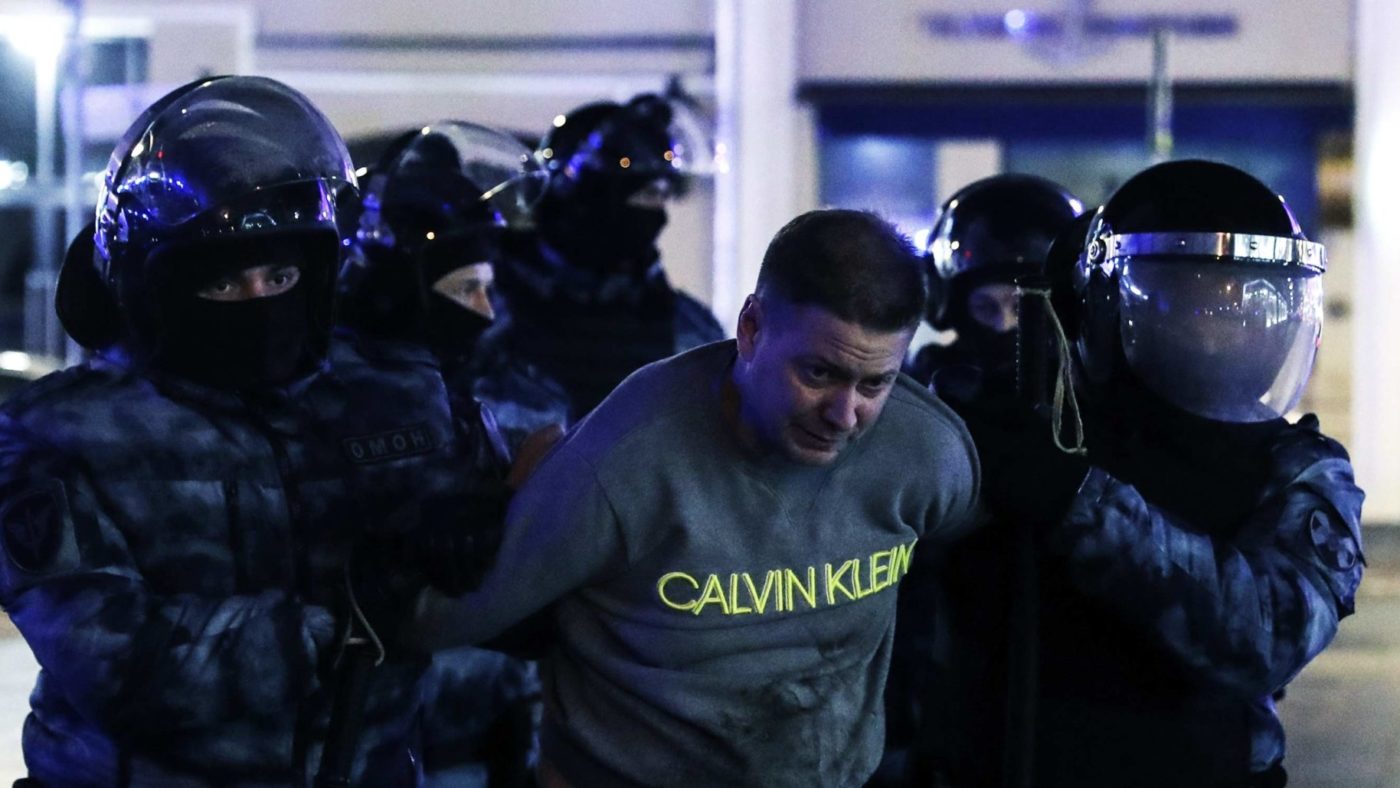The Russian state has a long history of imprisoning its political opponents, from the revolutionaries languishing in Tsarist katorgi to the Article 58-ers in the Soviet Gulag. Putin’s Russia has been no exception, from Mikhail Khodorkovsky’s decade-long imprisonment to this week’s sentencing of Aleksei Navalny to two years and eight months in a penal colony.
Tuesday’s court case was farcical even by Russian standards. Navalny was charged with violating probation in an old fraud case deemed by the ECHR to have been an unfair trial and punishment. The reason Navalny violated probation? He was recovering in Berlin after Russia’s security services poisoned him with the banned nerve agent Novichok. In essence, Navalny was imprisoned for failing to be assassinated.
On the day of the sentencing, the court added to this travesty, delaying their announcement for a bewilderingly long time. Russian state media RT clearly got fed up waiting and published the sentence some 30 minutes before the judge actually delivered it.
All this would be laughable if it wasn’t so terribly sad, both for the individuals involved and for anyone who hopes to see a freer, more democratic, rules-based Russia. It is hard not to be forlorn: Navalny’s assassination and imprisonment clearly signal a further tightening of the Kremlin’s already vice-like grip over political life. The sentence and the police brutality towards protestors are ushering in a darker, even more authoritarian period.
At the moment, Navalny’s sentence would see him released in October 2023, less than six months before Putin is due to stand for re-election in what will undoubtedly be fifth time lucky for the president. Like Khodorkovsky before him, it seems highly likely that Navalny will face further trumped up charges to make sure he’s well away from the public eye at such a sensitive time.
The Kremlin no doubt hopes that by making an example of Navalny and ridding the opposition movement of a young, charismatic leader, they have acted smartly and swiftly pour encourager les autres. Only time will tell if they are right, but if there is some small hope for the future, it lies in the regime’s increasingly blinkered understanding of politics.
Putin and his acolytes are projecting onto opponents their own weaknesses, in particular their intense vozhdizm – an understanding of power as a personalised system characterised by loyalty to one leader. Accordingly, if you remove the leader – or vozhd – you make it very hard for the political system they built to operate.
Applying this framework to Navalny’s movement won’t work for two reasons:
First, unlike Putin, Navalny has a host of talented people around him, not least his exceptional and dauntless wife, Yuliya, who some predict will pick up her husband’s baton, just as we have seen with Sviatlana Tsikhanouskaya in Belarus. There are also close allies and prominent political figures, such as Lyubov Sobol and Leonid Volkov, capable of representing the Anti-Corruption Fund and its message. Meanwhile, the Fund’s excellent investigators and researchers, including the formidable Maria Pevchikh, are free to continue their indignation-inducing exposés from abroad.
Second – and more importantly – the Kremlin seems to either forget or deliberately ignore, that the nationwide protests in recent weeks reflect genuine frustration and anger at corruption, arbitrary use of law, lack of democracy and the pitifully low living standards most ordinary Russians face. Of course, Navalny’s return to Russia breathed new life into the protest movement, but many of these protestors were demonstrating for a better life, rather than for the opposition leader personally.
The Kremlin has no readily discernible modernisation strategy or way of healing Russia’s deep-seated political and economic malaise. By comparison, Navalny is a political actor adept at harnessing the frustration of people Mark Galleotti describes as the ‘coalition of the fed up’. But his popularity is also a product of the daily injustices ordinary Russians face: of having to pay a bribe to access a doctor, of being late to work because the police shut down the motorway for Putin’s motorcade, of being exhausted from moonlighting because your teacher’s salary is under $200 a month. Without these injustices, Navalny as the political force he is today would not exist.
Rather than lashing out at the West, if Putin really wants to understand who is fuelling and promoting Navalny’s anti-corruption cause, he should take a good look at himself and his entourage. He might like what he sees, but fewer and fewer people in Russia feel the same. Yesterday, Putin imprisoned only the symptom of his problems, not the cause.
Click here to subscribe to our daily briefing – the best pieces from CapX and across the web.
CapX depends on the generosity of its readers. If you value what we do, please consider making a donation.


